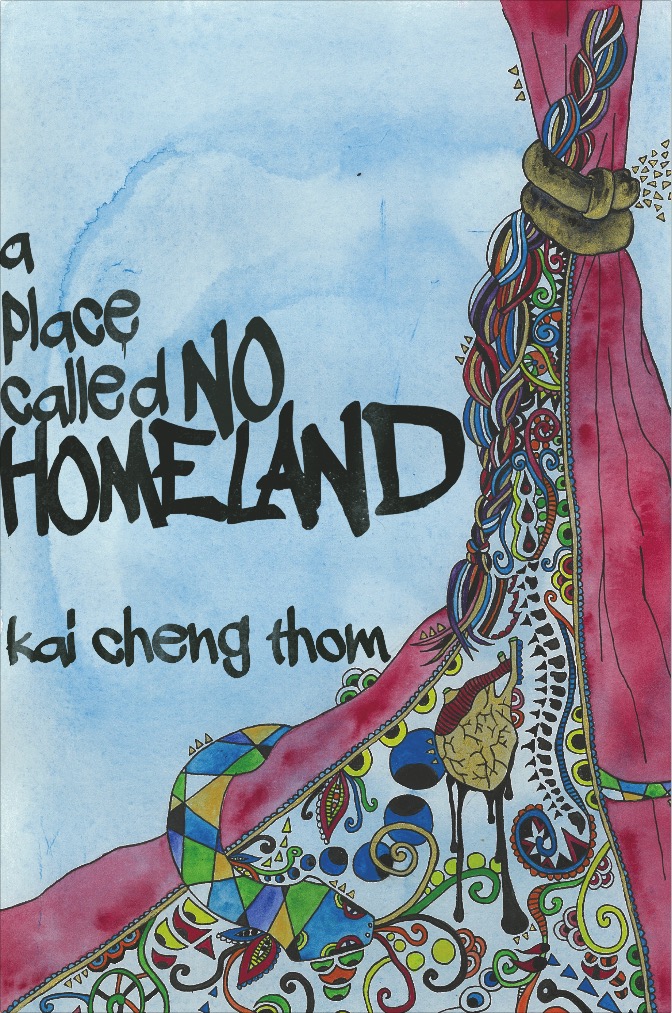
a place called No Homeland, Kai Cheng Thom, 84 pgs, Arsenal Pulp Press, arsenalpulp.com, $14.95.
I read Kai Cheng Thom’s a place called No Homeland at a restaurant over lunch and immediately regretted it. If you saw a hot mess at Spadina and Dundas St W, that was me. But it’s ok. It was worth it. The collection of poetry is a firework display of courage and victory in the face of aggression. She displays her scars in unexpected frankness and poise, but it turned out to be a touch overwhelming for my casual Toronto lunch.
Her poetry highlights the violence in her personal life and the history of violence in her family. She speaks on everything from queer and Chinese communities in BC, to experiencing rape and colonialism in painfully beautiful language. She approaches these difficult conversations with powerful authority. Kai Cheng Thom demands to be heard and seen on her own terms.
She forces us to take another look at Vancouver’s Chinatown and the people who live there. She builds a platform for her own voice, and through her, the voice of her family and marginalized communities to make their presence known and celebrated.
“chinese families
don’t talk about our feelings”/”we wash them down with pork”.
We are asked to see the people in her poetry, Kai Cheng Thom’s family, the scars they bare and the stories they silence because “what can’t be cured must be endured” .
Silence is a running theme of Kai Cheng Thom’s poetry, but her work is unapologetically loud. She draws our attention to the power of voices and the resilience of the bodies featured in her work.
In “trauma is not sacred”, Kai Cheng Thom reminds us that “violence is not special pain is not holy suffering does not make angels abuse defines no one you are more than the thing that hurt you you are more than the people you have hurt do not make an altar to your woundedness”.
Through her poetry, Kai Cheng Thom offers communal celebration to marginal people, and a strong, practiced voice of encouragement for transwomen who walk similar paths. (Jean Mathew)
